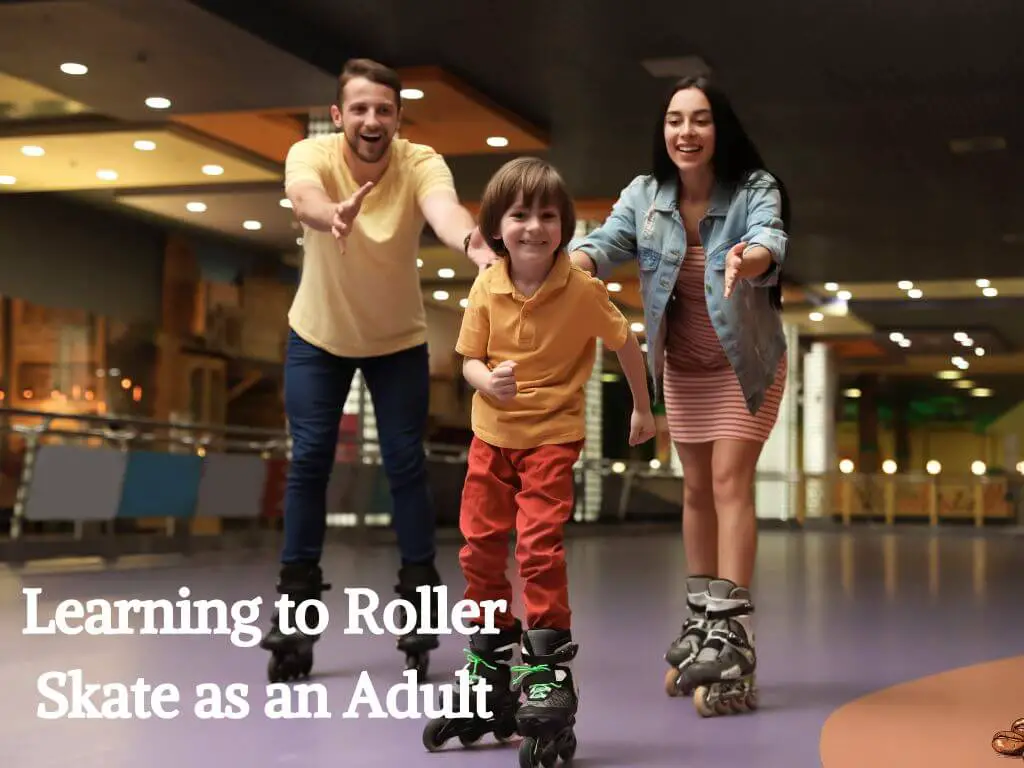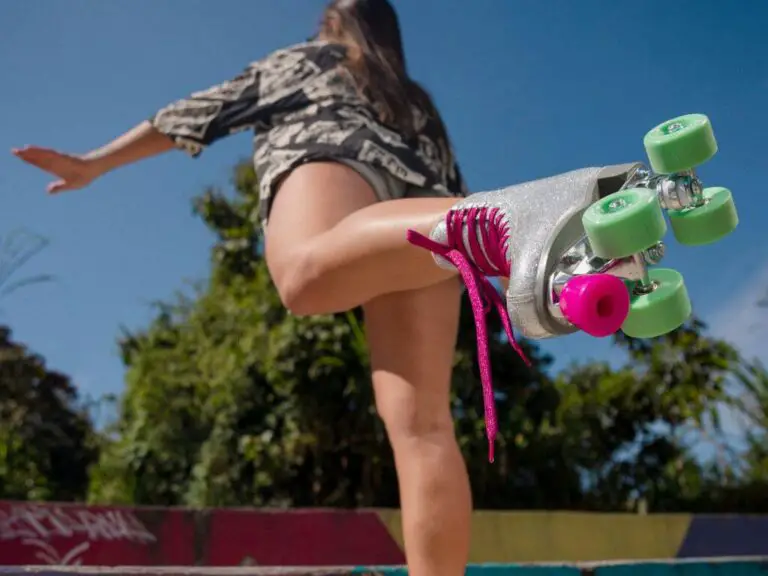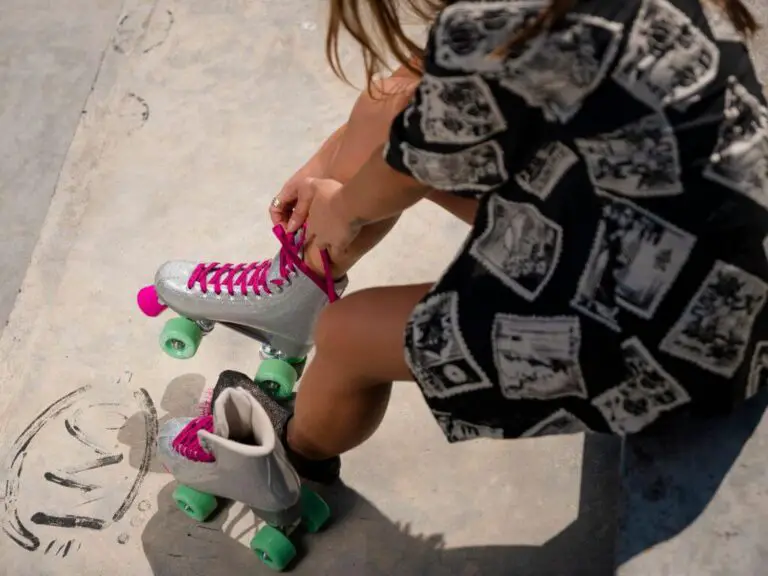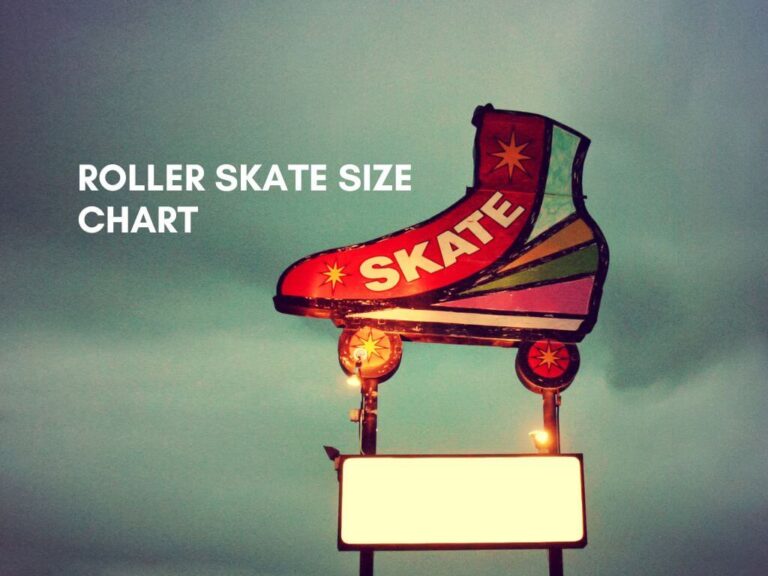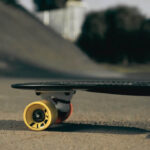Have you ever watched someone glide effortlessly on roller skates and thought, “I wish I could do that”? You’re not alone. Learning to roller skate as an adult is not only possible but also an incredibly rewarding experience. Whether you’re revisiting a childhood passion or trying something entirely new, roller skating offers a unique blend of physical activity, mental focus, and pure joy.
As adults, we often shy away from trying new skills, fearing failure or judgment. But here’s the truth: learning to roller skate as an adult is easier than you think, and the benefits are endless. From improving balance and coordination to boosting confidence and reducing stress, roller skating is a fantastic way to stay active while having fun.
Plus, it’s a skill that can be learned at any age, proving it’s never too late to embrace a new adventure.
In this guide, we’ll walk you through everything you need to know to start your roller skating journey. From choosing the right gear to mastering basic moves, you’ll discover why learning to roller skate as an adult is one of the best decisions you can make for your mind, body, and spirit. Lace up your skates—it’s time to roll into a new chapter of your life!
The Benefits of Learning to Roller Skate as an Adult
Roller skating is not just a fun pastime; it also offers a wealth of physical and mental benefits for adults. Here are some of the advantages of learning to roller skate as an adult:
- Improved Cardiovascular Health: Roller skating is a low-impact aerobic exercise that can help strengthen your heart, improve your endurance, and boost your overall cardiovascular fitness.
- Enhanced Balance and Coordination: Roller skating requires a high degree of balance, stability, and coordination, which can help improve your overall physical coordination and reduce the risk of falls or injuries.
- Stress Relief and Mental Well-being: The rhythmic motion of roller skating, combined with the sense of accomplishment and joy it can bring, can help alleviate stress, improve mood, and enhance overall mental well-being.
- Social Connections: Roller skating can be a social activity, allowing you to connect with others who share your passion for the sport and build a sense of community.
- Increased Confidence and Self-Esteem: Mastering the art of roller skating can boost your confidence and self-esteem, as you overcome challenges and achieve personal milestones.
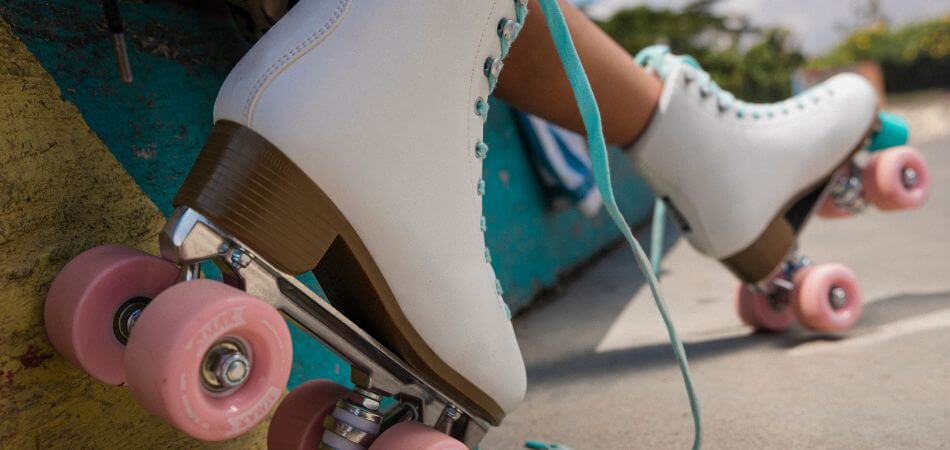
Overcoming Challenges and Fears When Learning to Roller Skate as an Adult
Learning to roller skate as an adult can be daunting, as many adults may have concerns about safety, balance, and the perceived difficulty of the sport. Here are some common challenges and strategies for overcoming them:
- Fear of Falling: It’s natural to feel apprehensive about falling, but with the right safety gear and a positive mindset, you can overcome this fear. Start by practicing in a safe, controlled environment, and gradually build up your confidence and skills.
- Lack of Balance and Coordination: Roller skating requires a high level of balance and coordination, which may be more challenging for adults who haven’t skated in years. Be patient with yourself, and focus on mastering the basics before attempting more advanced techniques.
- Muscle Soreness and Fatigue: Roller skating can be physically demanding, especially for those new to the sport. Allow your body to rest and recover between sessions, and consider incorporating cross-training activities to build overall strength and endurance.
- Self-Consciousness: Some adults may feel self-conscious about learning to roller skate, especially in public settings. Remember that everyone starts somewhere, and focus on your own progress rather than worrying about what others think.
By addressing these challenges head-on and embracing a growth mindset, you can overcome the obstacles and unlock the joy and benefits of roller skating as an adult.
Finding the Right Roller Skates for Adults
Choosing the right roller skates is an essential step in your journey as an adult roller skater. Here are some factors to consider when selecting the perfect pair of skates:
- Skate Type: Decide whether you prefer traditional quad skates (four wheels) or inline skates (three or four wheels in a single line). Each type has its own unique characteristics and may be better suited for different skating styles and preferences.
- Fit and Comfort: Ensure that the skates fit snugly and comfortably, with enough room for your toes to move freely without feeling cramped. Pay attention to the ankle support, padding, and overall cushioning.
- Wheel Size and Hardness: Larger wheels (typically 62-80mm) provide more stability and are better suited for outdoor skating, while smaller wheels (58-62mm) are more agile and better for indoor rinks. The wheel hardness, measured in durometer, affects the ride quality and grip.
- Skate Material and Construction: Look for skates made from durable materials, such as leather or high-quality synthetic materials, that can withstand regular use and provide adequate support.
- Adjustability: Consider skates with adjustable features, such as laces or Velcro straps, to ensure a customized fit and support as your feet and skills evolve.
By taking the time to find the right roller skates for your needs and preferences, you’ll be well on your way to a comfortable and confident skating experience.
Essential Safety Tips for Adult Roller Skaters
Safety should be a top priority when learning to roller skate as an adult. Here are some essential tips to keep in mind:
- Wear Protective Gear: Always wear a helmet, wrist guards, elbow pads, and knee pads to minimize the risk of injuries from falls or collisions.
- Start Slow and Master the Basics: Begin by practicing in a safe, controlled environment, such as a skating rink or a smooth, open area. Focus on mastering the basic techniques, such as starting, stopping, and turning, before attempting more advanced maneuvers.
- Maintain Awareness of Your Surroundings: Be mindful of other skaters, pedestrians, and any obstacles in your skating environment. Adjust your speed and movements accordingly to maintain control and safety.
- Warm Up and Cool Down: Before and after each skating session, take the time to stretch and warm up your muscles to prevent injuries and aid in recovery.
- Stay Hydrated and Fueled: Roller skating can be physically demanding, so be sure to stay hydrated and fuel your body with healthy snacks or meals to maintain energy and endurance.
- Listen to Your Body: If you experience any pain, discomfort, or fatigue, take a break and assess your condition. Pushing through injuries can lead to more severe problems.
By prioritizing safety and taking a cautious, step-by-step approach, you can enjoy the thrill of roller skating while minimizing the risk of injuries.
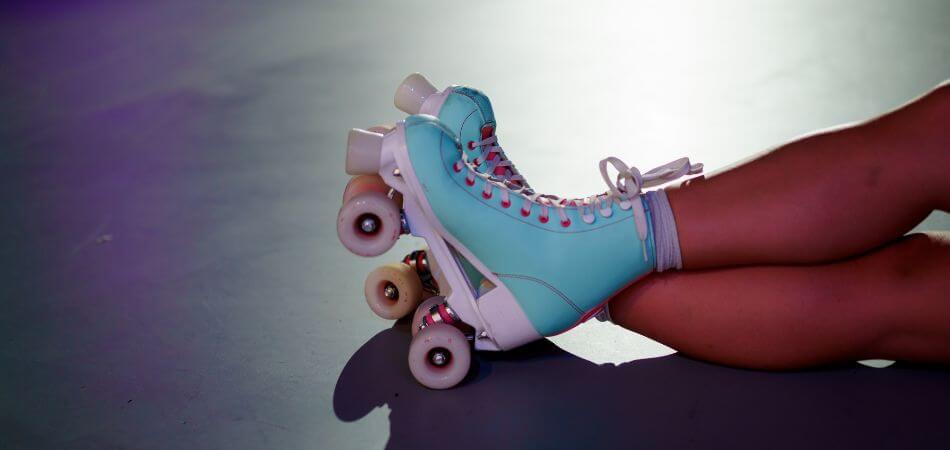
Basic Roller Skating Techniques for Beginners
Mastering the basic roller skating techniques is the foundation for building your skills and confidence as an adult skater. Here are some essential techniques to focus on:
- Stance and Balance: Maintain a slightly bent-knee, shoulder-width stance, with your weight evenly distributed between your feet. Keep your core engaged and your arms out to the sides for balance.
- Pushing and Gliding: Learn to push off with one foot while keeping the other foot flat on the ground, then glide on the pushing foot before switching to the other foot.
- Stopping: Practice different stopping techniques, such as the “T-stop” (dragging one foot behind the other in a T-shape) and the “plow stop” (bringing your feet together in a V-shape).
- Turning and Transitions: Learn to turn by shifting your weight and using your edges, and practice smooth transitions between forward and backward skating.
- Falling and Recovery: Develop the technique of falling safely by bending your knees and using your pads to absorb the impact. Practice getting back up quickly and efficiently.
- Skating Backwards: Once you’ve mastered the basics, challenge yourself by learning to skate backward, which requires a different set of balance and coordination skills.
Consistent practice and a willingness to try new techniques will help you steadily progress in your roller skating journey as an adult.
Progressing Your Roller Skating Skills as an Adult
As you become more comfortable and confident on your roller skates, you can start to explore more advanced techniques and challenges. Here are some ways to progress your skills:
- Mastering Edges and Transitions: Develop a strong understanding of your edges (inside and outside) and practice smooth, controlled transitions between them. This will improve your overall balance, agility, and control.
- Incorporating Crossovers and Turns: Learn to execute crossovers (crossing one foot over the other) and various turning techniques, such as the mohawk and the three-turn. These skills will enhance your maneuverability and allow you to skate more fluidly.
- Attempting Jumps and Spins: Once you’ve built a solid foundation, you can start experimenting with small jumps and simple spins. Remember to progress slowly and focus on maintaining control and safety.
- Exploring Different Skating Styles: Depending on your interests, you can delve into specific skating disciplines, such as artistic skating, roller derby, or freestyle skating, each with its own unique techniques and challenges.
- Participating in Skating Classes or Workshops: Consider enrolling in adult roller skating classes or attending workshops led by experienced instructors. They can provide personalized feedback, teach advanced techniques, and help you develop your skills more efficiently.
- Joining a Roller Skating Community: Connecting with other adult roller skaters, whether through local clubs, online forums, or skating events, can provide a supportive network, opportunities for practice, and inspiration to continue improving your skills.
By gradually building upon your foundational skills and embracing new challenges, you can unlock the full potential of roller skating as an adult and continue to progress in this exhilarating sport.
Joining Roller Skating Communities and Clubs for Adults
One of the joys of roller skating as an adult is the opportunity to connect with a vibrant and welcoming community of fellow enthusiasts. Joining a roller skating club or community can provide numerous benefits, including:
- Shared Experiences and Camaraderie: Roller skating clubs and communities offer a space for adults to come together, share their passion, and support one another in their skating journeys.
- Access to Coaching and Instruction: Many clubs and communities have experienced instructors who can provide personalized guidance, coaching, and skill-building workshops to help you progress.
- Organized Events and Competitions: Roller skating clubs often host various events, such as social skates, competitions, and exhibitions, giving you opportunities to showcase your skills and connect with other skaters.
- Shared Skating Facilities and Resources: Joining a club may grant you access to dedicated skating rinks, equipment, and resources that can enhance your overall skating experience.
- Motivation and Accountability: Being part of a community can provide the motivation and accountability to stay consistent with your roller skating practice and continue improving your skills.
To find a roller skating club or community in your area, you can search online, check with your local parks and recreation department, or ask other adult skaters for recommendations. Embracing the camaraderie and support of a roller skating community can enrich your overall experience and help you achieve your goals as an adult skater.
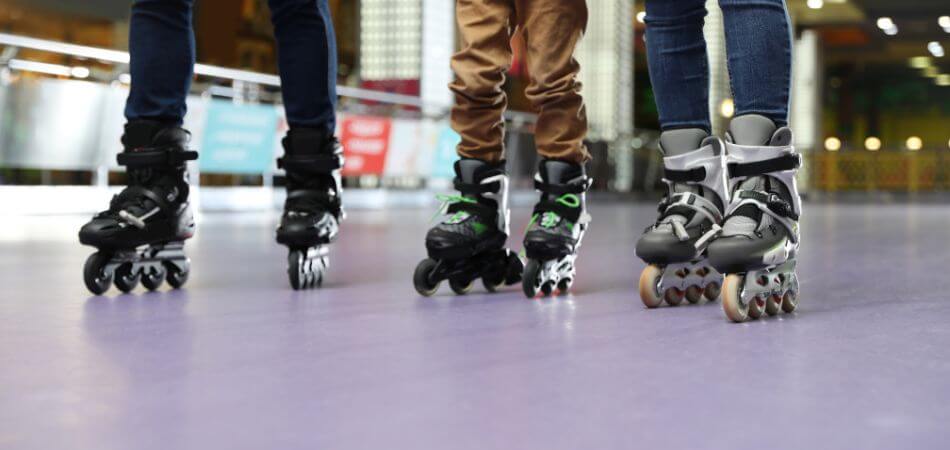
Roller Skating as a Form of Exercise and Fitness for Adults
In addition to the personal and social benefits of roller skating, it can also serve as an excellent form of exercise and fitness for adults. Here’s a closer look at the fitness advantages of roller skating:
- Cardiovascular Health: Roller skating is a low-impact, high-intensity aerobic activity that can effectively improve your cardiovascular fitness, increase your endurance, and strengthen your heart.
- Muscle Strengthening: Roller skating engages a variety of muscle groups, including your core, legs, and glutes, helping to build overall muscular strength and tone.
- Balance and Coordination: The constant need to maintain balance and coordination on roller skates can enhance your proprioception, stability, and overall physical coordination.
- Flexibility and Mobility: The dynamic movements and stretching involved in roller skating can improve your flexibility, range of motion, and joint mobility.
- Weight Management: As a calorie-burning activity, roller skating can be an effective tool for weight management and maintaining a healthy lifestyle.
- Stress Relief and Mental Well-being: The combination of physical activity and the enjoyment of roller skating can contribute to reduced stress levels and improved mental well-being.
By incorporating roller skating into your fitness routine, you can enjoy a fun, engaging, and holistic approach to exercise, helping you achieve your health and wellness goals as an adult.
Roller Skating Events and Competitions for Adult Skaters
The world of roller skating offers a diverse array of events and competitions for adult skaters to explore and participate in. Here are some examples of the exciting opportunities available:
- Recreational Skate Nights: Many roller skating rinks and arenas host regular “adult skate” sessions, providing a safe and welcoming environment for adults to enjoy the sport.
- Roller Skating Festivals and Conventions: These large-scale events bring together roller skaters of all ages and skill levels for workshops, demonstrations, and social skating opportunities.
- Roller Derby Tournaments: For the more adventurous adult skaters, roller derby offers a thrilling competitive experience, with teams and tournaments at the local, regional, and national levels.
- Artistic Skating Competitions: Adult skaters can showcase their technical and artistic abilities in disciplines like figure skating, freestyle, and dance skating.
- Endurance Skating Events: Long-distance roller skating events, such as marathons or ultra-marathons, challenge adult skaters to push their physical and mental limits.
- Roller Skating Exhibitions and Shows: Some roller skating clubs and organizations host public exhibitions and shows, allowing adult skaters to perform and share their skills with the community.
Participating in these events and competitions can provide a sense of accomplishment, foster a deeper connection with the roller skating community, and inspire you to continue developing your skills as an adult skater.
Conclusion: Embracing the Joy of Roller Skating as an Adult
Roller skating as an adult is a truly rewarding and fulfilling experience. By overcoming the initial challenges, finding the right equipment, and mastering the essential techniques, you can unlock a world of physical, mental, and social benefits. Whether you’re seeking a new form of exercise, a way to relive childhood memories, or simply a fun and engaging hobby, roller skating offers a unique and exhilarating path to personal growth and self-discovery.Ready to start your roller skating journey as an adult? Explore our selection of high-quality roller skates and protective gear to get started. Visit our website today and take the first step towards mastering the art of roller skating!

FAQ’s
Can adults learn roller skating?
Absolutely! Adults can definitely learn to roller skate. It’s a fun and rewarding activity that can be enjoyed at any age. With a little practice and patience, you can master the basics and progress to more advanced skills.
Can you learn to roller skate at 40?
Yes, you can definitely learn to roller skate at 40! It’s never too late to start a new hobby. With a little practice and patience, you can master the basics and have fun rollerblading.
Is roller skating good for adults?
Yes, roller skating is a great form of exercise for adults. It’s a low-impact activity that can help improve your cardiovascular health, balance, coordination, and muscle strength. Roller skating is also a fun and social way to stay active and meet new people.
How to begin roller skating as an adult?
Here are a few tips for starting roller skating as an adult:
Start with the basics: Begin by learning how to balance, push, and stop on a flat surface.
Take a class: Consider taking a roller skating class to learn proper technique and get guidance from an instructor.
Wear protective gear: Always wear a helmet, wrist guards, elbow pads, and knee pads to protect yourself from falls.
Practice regularly: The more you practice, the better you’ll become. Set aside time for regular roller skating sessions.

